

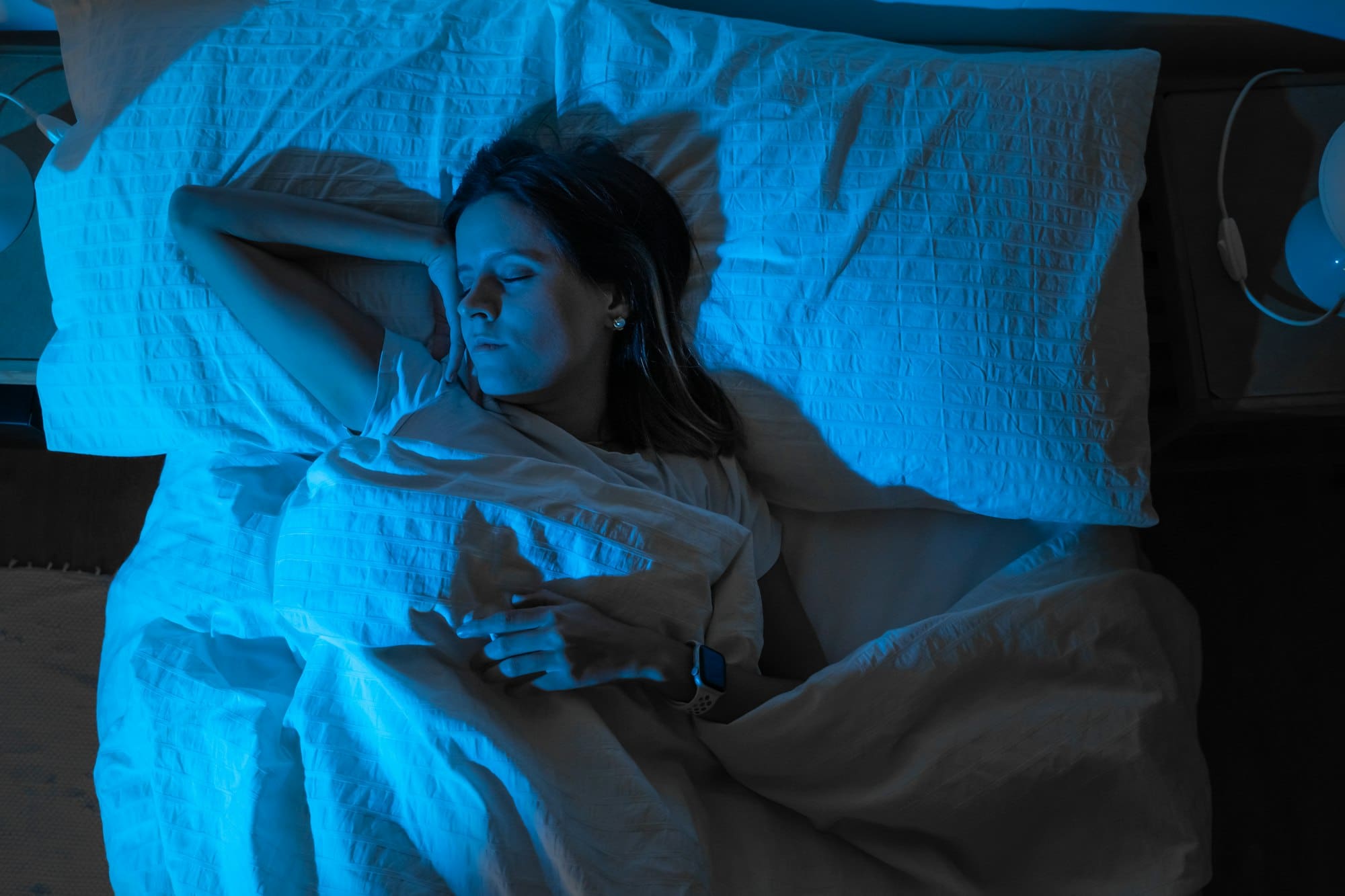
Sleep is a cornerstone of good health, yet it’s often the first sacrifice in our busy lives. Ever wonder why you feel sluggish or have trouble concentrating during the day? Poor sleep quality could be the culprit.
Getting enough restorative sleep is crucial for everything from your physical health to your emotional well-being.
Improving your sleep quality doesn’t have to involve drastic changes. Small adjustments in your daily routine can make a big difference. As the Dalai Lama wisely said,
“Sleep is the best meditation.”
Let’s explore some practical tips to help you get the restful sleep you deserve and wake up feeling refreshed and revitalized.
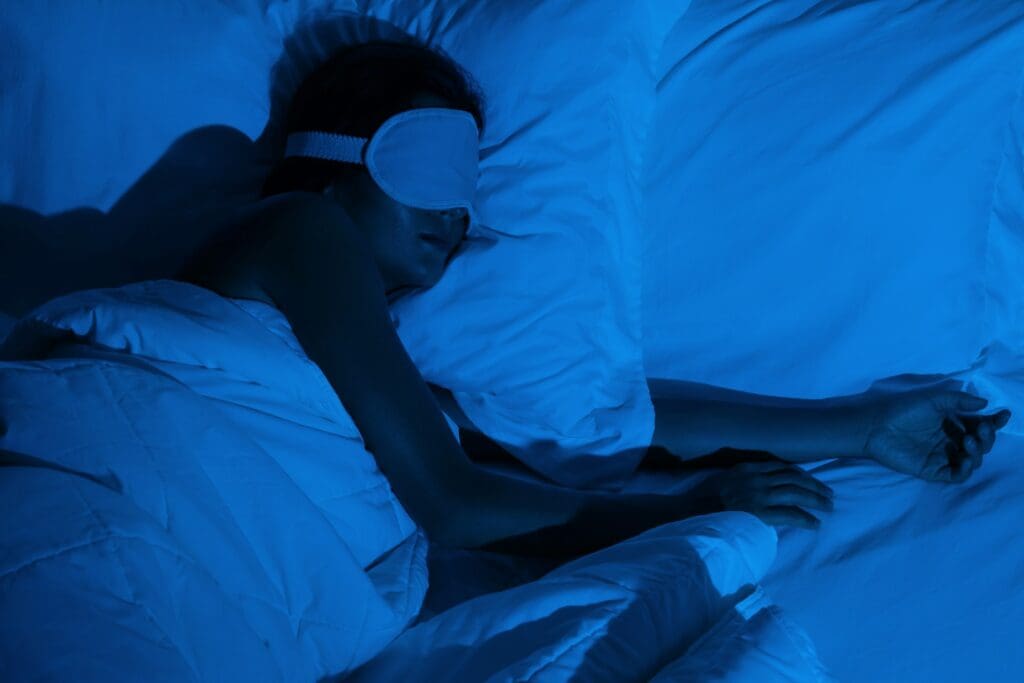
Sleep isn’t just about rest; it’s vital for your overall well-being. When you prioritize sleep, you’re investing in your physical and mental health.
Adequate sleep supports the body’s repair processes, enhances brain function, and boosts your immune system. Conversely, inadequate sleep can lead to a range of health issues, from short-term irritability and impaired cognitive function to more severe long-term consequences like hypertension, cardiovascular disease, and mental health disorders.
Research indicates that insufficient sleep disrupts the balance of hormones that regulate hunger, making it harder to maintain a healthy weight. It can also exacerbate stress and anxiety, further impairing your ability to fall and stay asleep, thus forming a vicious cycle.
Effective sleep hygiene – a combination of engaging in healthy sleep behaviors and creating an optimal sleep environment – is crucial for breaking this cycle.
Moreover, establishing and practicing good sleep hygiene can significantly improve your quality of sleep. Regular exercise, for instance, has been shown to promote better sleep and deliver other health benefits.
Similarly, creating a relaxing bedtime routine and managing stress can help enhance your sleep quality. By addressing factors that interfere with a good night’s sleep, you can not only improve your sleep but also enhance your overall health and well-being.
Imagine ending your day with a sense of calm and relaxation, seamlessly transitioning into a restful night of sleep. Establishing a consistent bedtime routine can help signal to your body that it’s time to wind down, making it easier to drift off peacefully.
Whether it’s light stretches, reading a favorite book, listening to soothing music, or enjoying a warm bath, these activities can collectively ease your mind and body into a state of readiness for sleep.

Stress and anxiety can severely impact your ability to fall and stay asleep. Thankfully, there are practical strategies to help manage these feelings and improve your sleep quality.
One effective approach is to incorporate relaxation techniques into your daily routine. Techniques such as deep breathing exercises, progressive muscle relaxation, or practicing mindfulness can be remarkably beneficial.
For instance, you might try the 4-7-8 breathing technique, which involves inhaling for four seconds, holding your breath for seven seconds, and exhaling for eight seconds. This method can help calm your nervous system and promote a sense of tranquility.
Additionally, engaging in regular physical exercise can help reduce stress levels and anxiety, thereby enhancing sleep. Even a 20-30 minute walk during the day can have significant benefits for both your mental state and sleep patterns.
It’s also worth considering the environment in which you sleep. Keep your bedroom a sanctuary for rest; ensure it’s cool, dark, and quiet. Sometimes, integrating elements such as lavender-infused aromatherapy or soothing background sounds can create a more serene atmosphere that supports relaxation and stress reduction.
Another powerful technique is maintaining a consistent sleep schedule. Going to bed and waking up at the same time every day, even on weekends, can regulate your body’s internal clock and make it easier to fall asleep. This regularity also helps reduce the likelihood of stress-related insomnia.
If managing stress and anxiety on your own seems overwhelming, don’t hesitate to seek help from a mental health professional. Cognitive-behavioral therapy (CBT) has been shown to be particularly effective in treating anxiety and sleep disorders, by changing negative thought patterns and behaviors that contribute to anxiety.
Remember, tackling stress and anxiety is not a one-size-fits-all solution. It might take some experimentation with different methods to discover what works best for you. By taking proactive steps to manage stress and anxiety, you can pave the way for better sleep and overall health.

In our modern world, technology is ubiquitous, and it’s hard to imagine life without our smartphones, tablets, and computers. However, these devices can often disrupt our sleep patterns and negatively impact our sleep quality.
One of the primary culprits is the blue light emitted by screens, which can interfere with the production of melatonin, the hormone that regulates sleep.
To find a balance, consider implementing a few practical strategies. First, aim to reduce your screen time at least an hour before bed. This means putting away your phone, turning off the TV, and resisting the temptation to check emails or social media.
Instead, engage in relaxing activities such as reading a physical book, meditating, or taking a warm bath. These activities can help signal to your body that it’s time to wind down and prepare for sleep.
Another useful tip is to adjust the settings on your devices. Many smartphones and tablets come with a ‘night mode’ or ‘blue light filter’ option, which reduces the emission of blue light during evening hours.
By activating this feature, you can mitigate some of the negative effects on your sleep cycle without entirely giving up your devices. Additionally, consider using blue light blocking glasses if you spend a significant amount of time in front of screens before bed.
It’s also essential to create a sleep-friendly environment. This means making your bedroom a sanctuary free from technological distractions. Keep your phone outside the bedroom or at least away from the bedside table.
Use an old-fashioned alarm clock if you rely on your phone as an alarm. By minimizing technology in your sleeping space, you create a more conducive atmosphere for restful sleep.
Finding balance with technology requires conscious effort, but the benefits to your sleep quality are well worth it. Prioritizing screen-free time before bed and creating a calming environment can dramatically improve your ability to fall asleep and stay asleep, leading to better overall health and wellbeing.
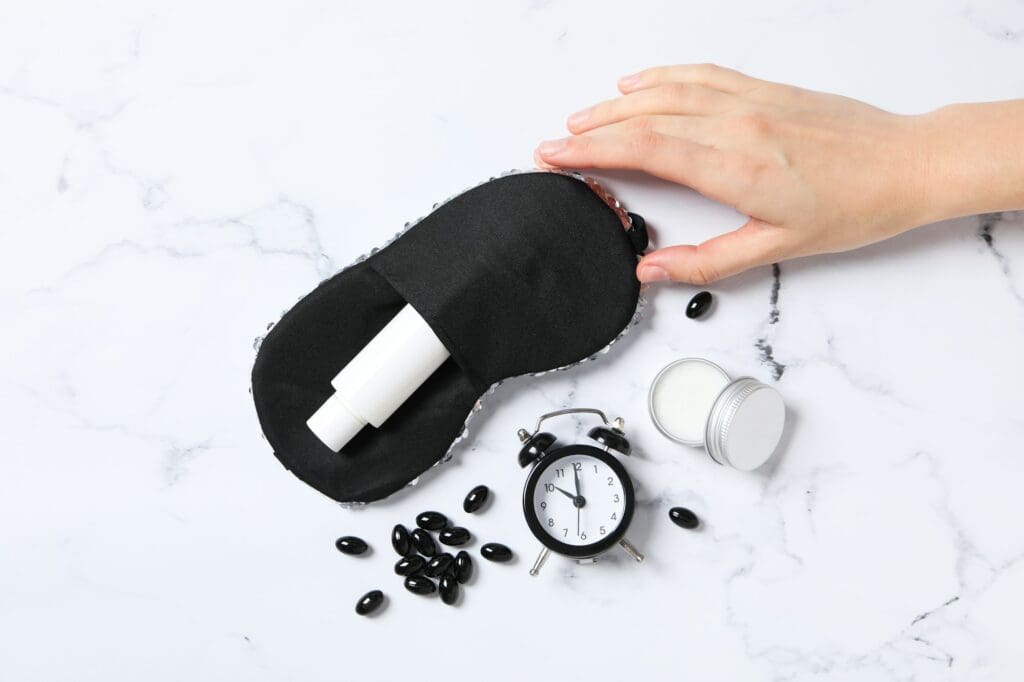
Sleep disorders can significantly impact your overall health and well-being. Recognizing the signs and seeking professional help is crucial.
Some common sleep disorders include obstructive sleep apnea, insomnia, and restless leg syndrome. If you find yourself consistently struggling with sleep despite efforts to improve it, it might be time to consult a healthcare provider.
It’s essential to discuss your symptoms with a doctor who can help determine if an underlying condition is affecting your sleep. They might suggest a sleep study or other diagnostic tests to get a clearer picture of your sleep patterns.
Developing a personalized sleep hygiene protocol can make all the difference. This may include creating a consistent sleep schedule, optimizing your sleep environment, and avoiding stimulants before bedtime.
If mental health concerns such as anxiety or depression are disrupting your sleep, consider seeking help from a psychologist or therapist. Cognitive-behavioral therapy for insomnia (CBT-I) is an effective treatment for improving sleep quality and addressing the thoughts and behaviors that may be causing sleep problems.
Don’t hesitate to take a sleep quiz or survey to help identify potential sleep disorders. These tools can be very insightful and are often the first step toward getting the help you need. Remember, prioritizing sleep and addressing sleep disorders are vital steps towards better health and improved quality of life.
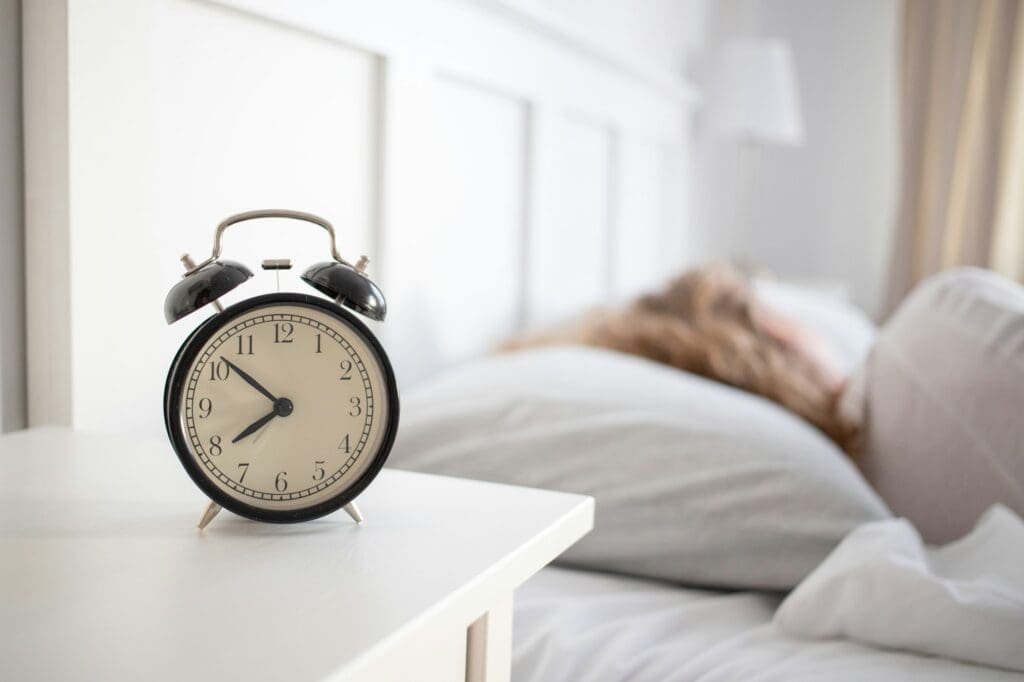
Improving your sleep quality doesn’t have to be a daunting task. With a few simple tips and some consistency, you can create the perfect environment for restful slumber. Whether you’re struggling to fall asleep or stay asleep, these practical tips are here to help.
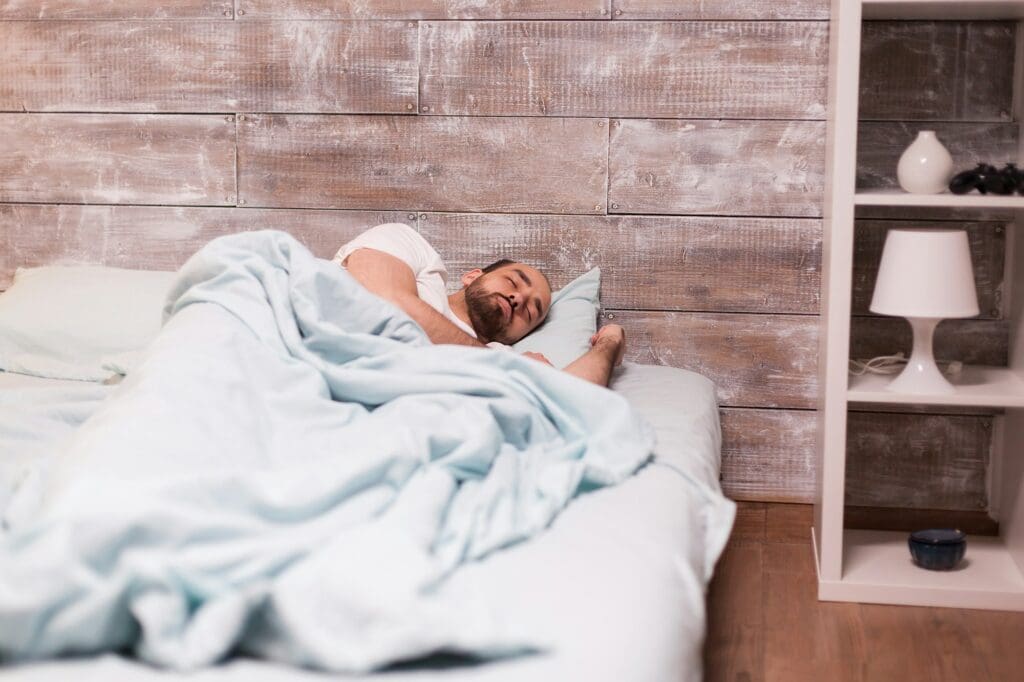
Eating the right foods can significantly impact your ability to get a good night’s sleep. Consider adding these sleep-friendly foods to your diet:
Incorporating these foods into your daily diet can be a delicious way to support better sleep quality. Remember to avoid heavy, spicy, and acidic foods close to bedtime as they can disrupt your sleep.
Creating an effective bedtime routine is key to signaling to your body that it’s time to wind down for the night. Begin by setting a consistent sleep schedule. Going to bed and waking up at the same time every day, even on weekends, helps regulate your body’s internal clock.
Next, introduce calming activities about 30-60 minutes before bed. This could include light stretches, reading a book, listening to soothing music, or practicing meditation. Avoid stimulating activities like intense exercise or using electronic devices with screens.
Consider taking a warm bath or shower to relax your muscles and prepare your body for sleep. Additionally, ensure your bedroom environment is conducive to sleep — keep the room cool, quiet, and dark. Investing in a comfortable mattress and pillows can also make a significant difference.
Finally, try to establish a routine that you can follow consistently. Whether it’s a specific order of activities or using certain scents from calming essential oils, the key is to let your body know it’s time to sleep.
Improving sleep quality through natural methods can be highly effective and accessible. One fundamental way is to maintain a consistent sleep schedule by going to bed and waking up at the same time every day, even on weekends.
This regulates your internal clock, making it easier to fall asleep and wake up naturally.
Exercise Regularly: Incorporating moderate physical activity into your daily routine can promote better sleep. Aim for activities like walking, jogging, or yoga, but avoid vigorous exercise close to bedtime as it may energize you and make it harder to fall asleep.
Mind Your Diet: What you eat and drink can significantly impact your sleep. Consider consuming sleep-friendly foods rich in melatonin and tryptophan, such as cherries, turkey, and almonds. It’s also wise to avoid caffeine and heavy meals two to three hours before bedtime.
Create a Relaxing Environment: Transform your bedroom into a sanctuary for sleep. Keep the room cool, dark, and quiet. Use blackout curtains, earplugs, or white noise machines if necessary. Calming scents such as lavender essential oil can also create a soothing atmosphere conducive to sleep.
Practice Relaxation Techniques: Engage in calming activities before bedtime, such as deep breathing exercises, meditation, or progressive muscle relaxation. These practices can help reduce stress and signal to your body that it’s time to wind down.
By incorporating these natural strategies, you can significantly improve your sleep quality, thereby enhancing your overall health and well-being.
Yes, certain sleep positions can indeed enhance your sleep quality. Generally, sleeping on your back is considered one of the best positions for spinal alignment, reducing the risk of back and neck pain.
However, if you have sleep apnea or snore, this might not be the most ideal position. On your side is another excellent position, often recommended for those with sleep apnea or prone to snoring.
It also promotes better digestion. The fetal position can be comfortable for many, especially pregnant women, but ensure it’s not too tight.
Avoid sleeping on your stomach, as this can cause strain on your spine and neck. Remember, comfort matters most, so choose a position that helps you wake up refreshed.
Yes, incorporating meditation or mindfulness practices into your daily routine can significantly improve your sleep quality. These practices work by calming your mind, reducing stress, and promoting relaxation—key components of good sleep hygiene.
Meditative exercises such as deep-breathing, progressive muscle relaxation, and guided imagery can help transition your body from wakefulness to sleep by soothing the nervous system.
Over time, regular meditation can train your mind to better handle the stress and distractions that often disrupt sleep, enabling a more peaceful and restorative night’s rest.
Making simple adjustments to your nighttime routines and environment can significantly impact your sleep quality and overall health. By prioritizing good sleep habits, managing stress, and finding a balance with technology usage, you pave the way for a healthier, more restful night.
Remember, improving your sleep is a journey, and it may require a bit of trial and error to find what works best for you. It might also be beneficial to speak with healthcare professionals, like Dr. David Rosen, if you suspect any underlying sleep disorders.
They can guide you through an appropriate course of treatment tailored to your needs.
Ultimately, investing in better sleep is investing in your well-being. Sweet dreams!









